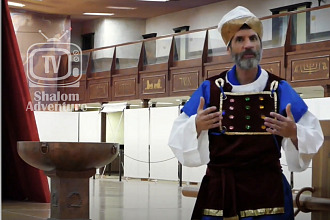The Greeks believed there were seven wonders of the ancient world. Unfortunately, only one of those original wonders still exists, the Great Pyramid of Giza. At the beginning of this century an initiative was conducted through popularity poll to decide what would be the new seven wonders of the modern world. At the end of the competition, the winners were—the statue of Christ the Redeemer in Brazil, Machu Picchu in Peru, Chichen Itza in Mexico, the Great Wall of China, Petra City in Jordon, the Roman Colosseum in Italy, and the Taj Mahal in India.
The eighth wonder of the world was formulated by the 20th century scientist, Albert Einstein, when he discovered the Compound Interest Rule of 72. This often-quoted Rule of 72 states simply that the number of years it will take to double your money is 72 divided by the rate of return. This formula doesn't take into account such realities as investment risk, inflation, and taxes, but it is an impressive demonstration of the power of compounding. However, it works both ways: it can either make you a millionaire if you save $700 a month at 6 percent for 35 years, or by the same rule, it can take the average household over ten years to pay off a balance of $12,000 credit card debt by only making a minimum monthly payment even without adding a single purchase on the card. No wonder Einstein declared: "Compound interest is the eighth wonder of the world. He who understands it, earns it . . . he who doesn't . . . pays it."
A classic example of this principle was the purchase of Manhattan Island by Peter Minuit from the local Indians for an assortment of cloths, beads, hatchets, and other odds and ends for $24 or 60 Dutch guilders. Others say that the value of the 60 guilders was closer to $72 dollars, but whatever it was, a mathematician figured out that if those Indians invested that sum at the local bank with compound interest for over 370 years they would have at least 60 billion dollars today.
To make sure this economic principle stays with you, I have included another example by Christian author and speaker Mary Hunt, from her recent book, The Smart Woman's Guide to Planning for Retirement (In my humble opinion, a must-read by both men and women): "In 1492, Christopher Columbus decided he was going to save for retirement. He had one penny ($0.01) and he knew he could earn 6 percent every year on his money. He put the penny in his left pocket and placed the interest ($0.01 x 6% = $0.0006) in his right pocket for safekeeping. He never added anything to his original penny in his left pocket. Yet the interest accumulated year after year in his right pocket."
Chris is a very healthy guy. He lives until today–521 years later–and decides to retire. So he takes his one penny from his left pocket and adds it to the simple interest in his right pocket. Guess how much he has.
Well, the interest in his right pocket adds up to only $0.31 (521 years x $0.0006 = $0.3132). Along with his original penny from his left pocket, he has about $0.32 on which to retire. Not very good planning!
What could Chris have done differently? Let's assume Chris was much more astute about investing because he knew about compounding. Instead of putting the interest in his right pocket, he put it in his left pocket with the original penny—the principal. Over the years, he earned the same 6 percent interest on the original penny as well as on the accumulated interest in his left pocket.
As the story goes, at the end of year one, he had $0.0106 in his left pocket (the original penny plus the 6 percent interest). At the end of year two, he had $0.011236 ($0.0106 plus the 6 percent interest). At the end of year three, he had $0.01191 ($0.011236 plus the 6 percent interest). This is called compounding, and it continued for Chris until today, 521 years later. How much has good ol' Chris finally accumulated for retirement?
The answer is somewhat more to Chris's liking. At the end of 521 years of compounding the original penny at 6 percent interest, Chris has accumulated $348,512,293,164.41—that's 348 billion, 512 million, 293 thousand, 164 dollars and 41 cents! Now that's a lot of pocket change!
"In its absurdity, this story carries a powerful punch. You do not have to begin rich to benefit from compounding growth. You need to be disciplined and smart enough to start early."1
From these two illustrations three very important principles stand out:
1. Start small and let it grow
Often when you look at what you need for your children's college fund or your sunny retirement you give up because the savings mountain seems so gigantic and immense. Rather than throwing up your hands and saying, "It's unattainable, it's impossible," remember the old saying: "The way to eat an elephant is simply one bite at a time." So it is with savings, just one dollar at a time.
2. Start early
Financial counselors are always telling their clients to start saving early. The reason is clear from this example: At age 25, if you started investing $2,000 per year with an average of 8 percent rate of return, 40 years later you would have over $606,000 in the bank. However, if you delayed saving until you were 35 and started investing $2,000 annually at the same 8 percent interest rate, at age 65 you would only have $266,000.
3. Be consistent
Decide today that the regular habit of putting away a set amount each week or pay period will be part of your economic lifestyle from now on. The best method I know is to systematically have a set amount taken from your paycheck by your employer and automatically placed in a bank or credit union savings account. Remember that what you don't see, you won't miss, and probably will not spend until the appropriate time it is needed.
References:
1 Mary Hunt, The Smart Woman's Guide to Planning for Retirement, Revell, 2013, pp. 132, 133.

























